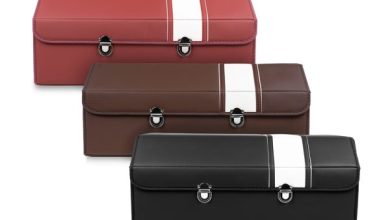You’ve probably heard the term “Halal” thrown around, especially if you’re in the food or cosmetics business. But what does it really mean? Simply put, Halal is an Arabic word that means permissible or lawful in Islam. So, Halal Certification is an official document proving that a product meets the requirements outlined in Islamic law (Shariah). This applies to everything from food ingredients to how a product is processed, packaged, and even stored.
Importance in Islam and Global Trade
For Muslim consumers, Halal isn’t just a preference—it’s a requirement. That’s why this certification is so crucial. It not only ensures religious compliance but also boosts consumer trust and opens up access to Muslim-majority markets across the globe.
Why Halal Certification Matters Today
Rising Demand for Halal Products
Let’s be honest—Halal is big business. The global Halal market is worth trillions, and it’s growing every year. From the Middle East to Southeast Asia and even Western countries, the demand for Halal-certified products is booming. If your product isn’t certified, you’re probably missing out on a huge market.
Consumer Trust and Brand Value
Certification builds credibility. It tells your customers that you’re serious about quality, hygiene, and religious standards. And let’s not forget, Halal certification is now a global quality benchmark—just like ISO or FDA approval.
Who Needs Halal Certification?
Food & Beverage Industry
This one’s a no-brainer. From meat processing plants to beverage companies, if you’re in the food game, Halal certification is a must for reaching Muslim consumers.
Cosmetics and Personal Care
Think soap, shampoo, creams, and makeup. If your products contain animal-derived ingredients or alcohol, you’ll need to prove they’re Halal-compliant.
Pharmaceuticals and Healthcare
Medicine and supplements also need Halal compliance. Capsules made with gelatin, for example, must come from Halal sources.
Logistics, Packaging & Retailers
Even businesses involved in packaging or supply chain logistics might need certification—especially if they handle both Halal and non-Halal goods.
Benefits of Getting Halal Certified
Access to Global Markets
Want to sell in Saudi Arabia, Malaysia, UAE, or Indonesia? You’ll need Halal certification. No certification, no entry. It’s that simple.
Enhanced Brand Reputation
Being certified sends a powerful message: “We care about your values.” That alone can boost brand loyalty and consumer confidence.
Competitive Business Advantage
In many industries, Halal certification is a unique selling point. It helps you stand out from competitors who aren’t certified.
How the Halal Certification Process Works
Step 1 – Application Submission
Start by contacting a recognized Halal certifying body like Alwaiz Certification. You’ll fill out a form with all the basic company and product details.
Step 2 – Document Review
Next, the certifier reviews your ingredients, manufacturing processes, supplier sources, and other critical documents.
Step 3 – Site Inspection & Audit
An on-site inspection follows. Experts check your facility, hygiene practices, and ensure there’s no cross-contamination with non-Halal substances.
Step 4 – Issuance of Certificate
If everything checks out, congratulations! You receive your Halal certificate, usually valid for one year with renewal options.
Key Requirements for Halal Certification
Raw Material Compliance
Every ingredient must be verified as Halal. This includes flavorings, additives, and even processing aids.
Hygiene and Sanitation Standards
Cleanliness isn’t just nice to have—it’s mandatory. Your facility must meet Islamic hygiene guidelines.
Separation from Non-Halal Operations
No mixing allowed! Halal and non-Halal products must be strictly separated during production and storage.
Who Provides Halal Certification?
Recognized Halal Certification Bodies
Not all certifiers are equal. Look for ones recognized by local Islamic authorities or international bodies. Alwaiz Certification is a trusted name known for its fast and reliable service.
Role of Shariah Scholars and Auditors
Certification isn’t just a paperwork game. Shariah scholars verify religious compliance, while auditors check your systems and processes.
How Long Does Halal Certification Take?
Typically, it takes 2 to 6 weeks, depending on how ready your documentation and facilities are.
How Much Does Halal Certification Cost?
Costs vary by industry, size of operation, and number of products. Expect fees to range from a few hundred to a few thousand dollars.
Common Myths About Halal Certification
-
“It’s only for meat.” Nope—applies to everything from toothpaste to vaccines.
-
“It’s expensive and hard.” Not if you’re working with the right partner.
-
“Only Muslim countries care.” Wrong again—Halal is gaining ground worldwide.
Difference Between Halal and Haram Products
-
Halal: Permissible under Islamic law.
-
Haram: Forbidden, such as pork, alcohol, or improperly slaughtered animals.
What Happens After Certification?
Surveillance & Renewal
Most certifications last for a year. Annual audits and compliance checks ensure your continued eligibility.
Maintaining Halal Standards
Keep your processes clean and compliant to avoid revocation.
Challenges Faced by Businesses
-
Lack of awareness
-
Complex documentation
-
Ingredient sourcing
-
Language barriers in international certification
Tips for a Smooth Certification Process
-
Prepare documents in advance
-
Train your staff on Halal standards
-
Choose an experienced certifier like Alwaiz Certification
Why Choose Alwaiz Certification for Halal Certification
Alwaiz Certification offers fast, credible, and internationally accepted Halal certification backed by Shariah scholars and industry professionals. With years of experience and hundreds of satisfied clients, we make the process seamless and affordable.
Conclusion
Getting Halal certified isn’t just about religious compliance—it’s about trust, opportunity, and global recognition. Whether you’re in food, cosmetics, or pharma, Halal certification is a badge of integrity and a ticket to global growth. And with partners like Halal certification, you can achieve that status with ease and confidence.
FAQS
1. How long is a Halal certificate valid?
Most Halal certificates are valid for 1 year and require annual renewal with an audit.
2. Can non-Muslim businesses get Halal certified?
Absolutely! Many Halal-certified businesses are non-Muslim-owned. What matters is compliance.
3. What if a product contains alcohol?
If the alcohol is synthetic or used for sterilization, it may be acceptable in some cases—but it depends on the fatwa of the certifying body.
4. Does Halal certification help in exports?
Yes! It’s often a requirement for exporting to countries like UAE, Malaysia, and Indonesia.
5. Is Halal certification only for food products?
Nope—it’s for food, cosmetics, pharmaceuticals, logistics, and more.




